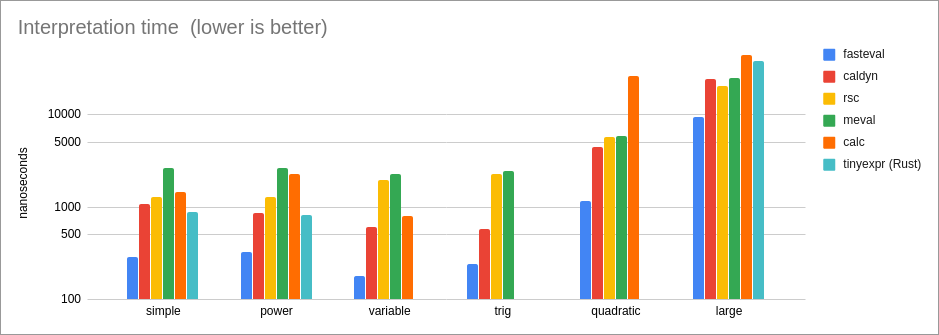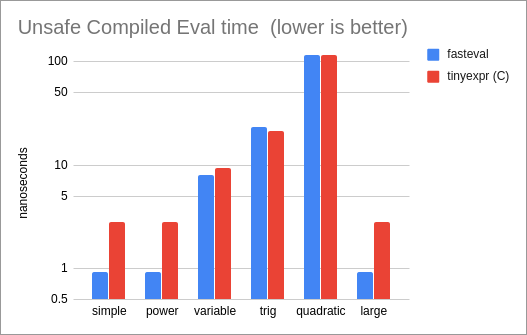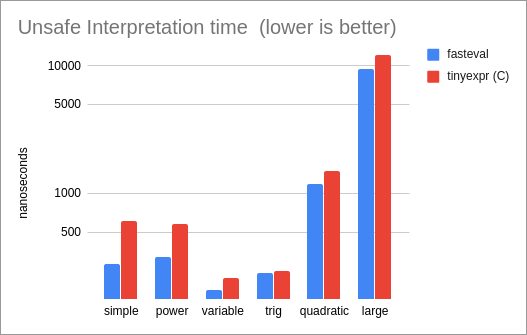fasteval
A fast algebraic expression evaluation library.
fasteval is a library for parsing, compiling, and evaluating algebraic expressions.
It can be used directly as a calculator language (much like python), and it is
an excellent foundation for building higher-level-languages.
Documentation:
Getting fasteval
Usually, cargo will automatically fetch your depdendencies for you.
You can also do: git clone https://github.com/likebike/fasteval.git
Features
- Supports interpretation (i.e. parse & eval) as well as compiled execution (i.e. parse, compile, eval).
- Variables and Custom Functions.
- Safe for execution of untrusted expressions.
- Good base for building higher-level languages.
- Many built-in functions and constants.
- Supports all the standard algebraic unary and binary operators (+ - * / ^ %), as well as comparisons (< <= == != >= >) and logical operators (&& ||) with short-circuit support.
- Easy integration into many different types of applications, including scoped evaluation.
- Very fast performance.
Easy Example
Here is one simple example. See the API Reference for many more!
The ez_eval() function performs the entire allocation-parse-eval process
for you. It is slightly inefficient because it always allocates a
fresh Slab, but it is very simple to use:
Performance Benchmarks
Here is a short summary of the performance benchmarks. For a more complete report and anlysis, see the API Reference.
Charts
Note that the following charts use logarithmic scales. Therefore, tiny visual differences actually represent very significant performance differences.
Performance of evaluation of a compiled expression:

Performance of one-time interpretation (parse and eval):

Performance of compiled Unsafe Variables, compared to the tinyexpr C library (the
only other library in our test set that supports this mode):

Performance of interpreted Unsafe Variables, compared to the tinyexpr C library (the
only other library in our test set that supports this mode):

Summary
The impressive thing about these results is that fasteval consistently
achieves the fastest times across every benchmark and in every mode of
operation (interpreted, compiled, and unsafe). It's easy to create a
design to claim the #1 spot in any one of these metrics by sacrificing
performance in another, but it is difficult to create a design that can be
#1 across-the-board.
Because of the broad and robust performance advantages, fasteval is very
likely to be an excellent choice for your dynamic evaluation needs.
License
fasteval is distributed under the terms of both the MIT license.
See LICENSE for details.